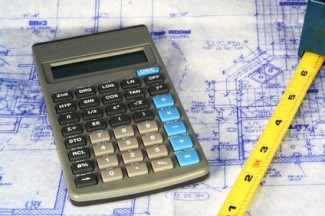Are Massachusetts Online Real Estate Values Accurate?
How accurate are online real estate valuations in Massachusetts? Online valuation sites like Zillow, Redfin, and Trulia utilize algorithms to determine home values, but there can be significant variations between them and actual sale prices.
Factors such as local databases, sales records, and tax records play a role in these estimates, but they may be less precise for off-market homes or properties with renovations. Supplementing online assessments with methods like property visits, professional appraisals, or comparative market analysis from real estate agents is recommended.
Real estate professionals’ expertise is crucial in determining accurate home values. In my three decades of experience selling real estate, rarely, if ever, are online valuations accurate. Unfortunately, far too many people see things like home value estimates on Zillow and think that is what their property is worth. It’s called fools gold. Never trust a “Zestimate” as being your property’s value.
Consumers should not make such significant financial decisions by looking at online home value estimates. The best way to get an accurate house value is by speaking to a professional.
How Online Real Estate Valuations Work
Online real estate valuations have become increasingly popular, giving homeowners and potential buyers a quick estimate of a property’s value. These valuations rely on algorithms employed by platforms such as Zillow, Redfin, and Trulia. Understanding how these algorithms work and the factors they consider is crucial in evaluating the accuracy of online valuations.
The Role of Algorithms in Determining Home Values
Algorithms play a significant role in determining the value of a home in online valuations. These complex mathematical models analyze various data points to produce an estimate. While the exact algorithms used by different platforms may differ, they generally consider factors such as recent sales data, property characteristics, and market trends.
Factors Considered by Online Valuation Sites
Online valuation sites consider various factors to estimate a property’s value. These factors typically include the property’s location, size, number of bedrooms and bathrooms, amenities, and recent sales of comparable properties. Some platforms may even analyze additional data, such as school ratings and crime rates, to further refine their estimates.
Imprecision of Online Estimates for Off-Market Homes
It’s important to note that online valuations may not be as accurate for off-market homes. Online platforms may lack up-to-date information since these properties are not actively listed for sale. Without recent sales data or property updates, the algorithms may struggle to provide an accurate estimate. Therefore, it is crucial to approach online valuations for off-market properties with caution.
So if you want to purchase a pocket listing not officially listed for sale, steer clear of online value estimates.
Influence of Renovations and Improvements on Valuations
Renovations and improvements can significantly impact a property’s value, but online valuations may not accurately reflect these changes. If a property has undergone renovations since its last sale, the algorithms may not have access to this updated information.
As a result, online estimates may not fully capture the increased value resulting from these improvements. Considering the potential discrepancy between online valuations and a property’s value with recent renovations is essential.
Ensuring Accuracy in Online Real Estate Valuations in Massachusetts
Regarding online real estate valuations, taking additional steps is essential to ensure accuracy. Relying solely on online estimates may not comprehensively understand a property’s value.
You can obtain a more accurate assessment of a property’s worth by supplementing these estimates with other research methods, conducting property visits and professional appraisals, and seeking comparative market analysis from real estate agents.
Supplementing Online Estimates with Other Research Methods
While online valuations serve as a starting point, gathering information from various sources is essential to comprehensively understand a property’s value. Consider researching recent sales in the area, browsing local property databases, and consulting tax records to supplement the online estimates.
Importance of Property Visits and Professional Appraisals
Property visits allow for assessing a home’s condition and unique features that may impact its value. By physically inspecting the property, you can consider factors such as renovations, upgrades, or any other improvements that may affect its worth. For example, you may have just finished your basement. Do you think an online valuation will know how to price it? Fat chance!
You could have extravagant features like a built-in bar and a home theatre. On the other hand, you could have a few walls and some cheap carpet. There can always be significant differences in how you make improvements. Online real estate valuation tools have no idea of the quality of the finishes and the level of detail.
Obtaining a professional appraisal conducted by a qualified appraiser can provide a more accurate evaluation based on their expertise and knowledge of current market trends. Some excellent agents who consistently price homes accurately will also know.
Seeking Comparative Market Analysis from Real Estate Agents
Real estate agents possess valuable insights into local housing markets and can provide a comparative market analysis. Real estate agents can determine a property’s value in the current market by analyzing recent sales data, market trends, and comparable properties. Consulting with a real estate agent can help validate and complement online valuations.
Whether you are a buyer or seller, one of a Realtor’s roles is to provide pricing due diligence. This includes providing accurate counseling on what to price a home at or make an offer.
By taking these additional steps and considering various research methods, property visits, appraisals, and real estate agent insights, you can more accurately evaluate online real estate valuations. Remember, relying solely on online estimates may not accurately represent a property’s worth, especially considering the many factors influencing home values.
Limitations and Variations in Online Valuations
Regarding online real estate valuations, there are certain limitations and variations to be aware of. These factors can influence the accuracy and reliability of the estimated home values provided by platforms like Zillow, Redfin, and Trulia. Let’s explore some of the critical aspects:
Discrepancies and Differences among Zillow, Redfin, and Trulia
It is important to note that there can be noticeable discrepancies and differences in the valuations provided by Zillow, Redfin, and Trulia. Each platform may have its own proprietary algorithm and data sources, resulting in variations in the estimated values.
These variations can stem from variations in algorithms, data collection methods, and market data used by these platforms. It is advisable not to rely solely on one platform’s estimate but rather compare and analyze forecasts from multiple sources.
Impact of Local Databases, Sales Records, and Tax Records
The accuracy of online valuations heavily relies on the quality and completeness of local databases, sales records, and tax records. These records and databases serve as crucial sources of information for determining property values. However, disparities or inaccuracies in these databases can lead to variations in online estimates.
It’s essential to understand that online valuations rely on the data available at the time and may not always reflect the most up-to-date information.
Observing Discrepancies between Online Estimates and Actual Sale Prices
One of the significant limitations of online valuations is the potential disparities between the estimated values and the actual sale prices of properties. Numerous factors can contribute to these discrepancies, such as market fluctuations, unique property features, bidding wars, or buyer and seller negotiations.
Remember that online estimates provide a general idea of a property’s value, but the final sale price can vary depending on various market dynamics and individual circumstances.
While online real estate valuations can be helpful as a starting point, it’s crucial to exercise caution and understand their limitations. Considering the discrepancies and variations among platforms, the impact of local data sources, and the disparities between estimates and actual sale prices, it is advisable to consult with local Realtors to obtain a more accurate assessment of a property’s value.
The Value of Real Estate Professionals in Valuations
The Expertise and Insights of Realtors
Real estate professionals possess invaluable expertise and insights to determine accurate home values. With their extensive knowledge of the local housing market, real estate agents can provide in-depth analysis based on current market trends, comparable properties, and economic indicators.
Their understanding of neighborhood dynamics, school districts, and amenities gives them an edge in evaluating the true worth of a property. Real estate agents leverage their experience and resources to offer valuable guidance throughout the valuation process.
The Role of Real Estate Agents in Determining Accurate Home Values
Real estate agents are intermediaries between buyers and sellers, acting as trusted advisors in determining fair and accurate home values. They evaluate various factors when estimating property worth, including location, condition, size, and recent sales data.
Agents conduct thorough market research, considering objective and subjective data for informed valuation. They aim to ensure that sellers list their properties at the right price and that buyers make informed decisions based on accurate valuations.
Utilizing Agents’ Knowledge of Local Housing Market and Trends
By tapping into their knowledge of the local housing market and trends, real estate agents provide valuable insights not captured by online valuations alone. They know about recent sales, off-market opportunities, and upcoming developments affecting property values.
A Realtor’s understanding of market demand and supply dynamics helps determine competitive pricing strategies. Real estate agents also consider economic growth, employment prospects, and neighborhood revitalization plans to assess a property’s long-term potential. Their expertise ensures accuracy and maximizes the value for buyers and sellers alike.
Final Thoughts
Whether buying or selling a Massachusetts home, rely on experts to give you a fair and accurate market value. Placing stock in online estimates can be a costly mistake.













No Comment